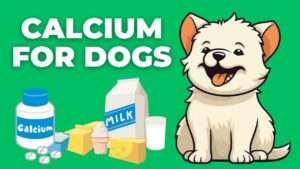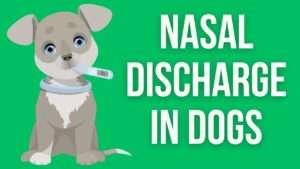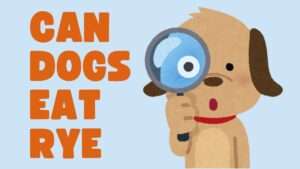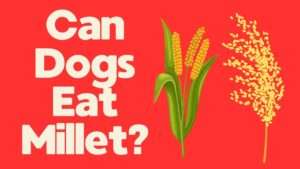Beans, a staple in many human diets worldwide, come in various shapes, sizes, and flavors. From black beans to kidney beans, they offer a plethora of nutrients and are often touted as a healthy addition to meals. But what about our canine companions? Can dogs partake in the bean bonanza safely? In this comprehensive guide, we’ll explore the ins and outs of dogs consuming beans, examining their nutritional value, potential benefits, risks, and how to incorporate them into your pet’s diet responsibly.
Contents Overview
What are Beans?
Beans are edible seeds that come from various plants belonging to the legume family. They are a staple food in many cultures worldwide, offering a rich source of protein, fiber, vitamins, and minerals. Common types include black beans, kidney beans, chickpeas, and lentils, each with its unique flavor and nutritional profile. Beans are versatile ingredients used in a wide range of dishes, from soups and stews to salads and dips. They are valued not only for their nutritional benefits but also for their affordability and long shelf life.
Nutritional Value of Beans
Beans pack a powerful punch of nutrition, boasting high levels of protein, fiber, and essential vitamins and minerals. They are particularly rich in folate, iron, potassium, and magnesium. Additionally, beans are low in fat and cholesterol-free, making them a heart-healthy choice. Their high fiber content aids digestion and helps regulate blood sugar levels, making them an excellent option for those managing diabetes or seeking weight management. Incorporating beans into your diet can contribute to overall health and well-being.
Can Dogs Eat Beans Safely?
The answer is yes, dogs can eat beans safely, but with some considerations. Plain, cooked beans such as black beans, kidney beans, or chickpeas can be a healthy addition to your dog’s diet in moderation. However, it’s crucial to avoid feeding them seasoned or canned beans, which may contain added salt, spices, or other ingredients harmful to dogs. Also, introducing beans gradually to your dog’s diet can help prevent digestive upset. Beans provide dogs with protein, fiber, and essential nutrients, promoting overall health and supporting their digestion. Always consult with your veterinarian before making significant changes to your dog’s diet to ensure it aligns with their specific nutritional needs and health conditions.
Potential Benefits of Beans to Dogs
Incorporating beans into a dog’s diet can offer several potential benefits:
- Nutritional Boost: Beans are a good source of protein, fiber, vitamins, and minerals, which can supplement a dog’s diet and contribute to their overall health and well-being.
- Digestive Health: The fiber content in beans can aid in digestion and regulate bowel movements, promoting gastrointestinal health in dogs.
- Weight Management: The high fiber and protein content of beans can help dogs feel fuller for longer, potentially aiding in weight management and preventing obesity.
- Blood Sugar Regulation: The complex carbohydrates in beans can help stabilize blood sugar levels in dogs, making them a suitable option for diabetic pets when fed in moderation.
- Heart Health: Beans are low in fat and contain no cholesterol, making them a heart-healthy option for dogs, potentially reducing the risk of cardiovascular issues.
- Variety in Diet: Adding beans to a dog’s diet can provide variety and diversity, preventing boredom and potentially increasing their enjoyment of meals.
Potential Risks and Precautions of Feeding Beans to Dogs
While beans can offer benefits to dogs, there are also potential risks and precautions to consider:
- Flatulence: Beans contain oligosaccharides, complex sugars that can be difficult for dogs to digest, leading to gas and bloating. Introducing beans gradually and in moderation can help reduce the risk of digestive upset.
- Allergies: Some dogs may be allergic to certain types of beans, such as soybeans or kidney beans. Monitor for signs of allergic reactions, such as itching, swelling, or gastrointestinal distress, and discontinue feeding if any symptoms occur.
- Toxicity: Raw or undercooked beans contain lectins, which can be toxic to dogs and cause gastrointestinal upset. Always ensure that beans are thoroughly cooked before feeding them to your dog to eliminate any harmful substances.
- Sodium Content: Canned beans often contain added salt, which can be harmful to dogs and lead to sodium toxicity or electrolyte imbalances. Opt for plain, unsalted beans and rinse them thoroughly before feeding to reduce sodium content.
- Portion Control: While beans can be a nutritious addition to a dog’s diet, they should be fed in moderation. Too many beans can lead to excessive calorie intake, weight gain, and digestive issues.
- Consultation with Veterinarian: Before introducing beans or any new food into your dog’s diet, consult with your veterinarian. They can provide personalized recommendations based on your dog’s age, size, breed, health status, and dietary needs.
Safe Ways to Feed Beans to Dogs
Feeding beans to dogs safely involves following these guidelines:
- Cook Thoroughly: Always cook beans thoroughly before feeding them to your dog to eliminate lectins and other harmful substances present in raw or undercooked beans.
- Plain and Unseasoned: Offer plain, unsalted beans to your dog, avoiding seasoned or canned varieties that may contain added salt, spices, or other ingredients harmful to dogs.
- Moderation: Introduce beans gradually into your dog’s diet and feed them in moderation to prevent digestive upset and ensure balanced nutrition.
- Small Portions: Serve beans to your dog in small portions, especially if they are trying them for the first time, and monitor for any adverse reactions.
- Mix with Dog Food: Mix cooked beans with your dog’s regular food to add variety and enhance nutritional content. This can help make the transition smoother and more palatable for your dog.
- Avoid Certain Varieties: Some types of beans, such as soybeans, can be harder for dogs to digest and may cause allergic reactions in some individuals. Opt for safer options like black beans, kidney beans, or chickpeas.
- Rinse Thoroughly: If using canned beans, rinse them thoroughly under running water to remove excess salt and reduce sodium content before feeding them to your dog.
- Consult with Veterinarian: Before incorporating beans into your dog’s diet, consult with your veterinarian to ensure it aligns with their specific nutritional needs and health status. They can provide personalized recommendations based on your dog’s individual requirements.
When to Avoid Beans to Dog
- If your dog has a known allergy to beans or has shown signs of allergic reactions in the past, such as itching, swelling, or gastrointestinal distress.
- If your dog has a sensitive stomach or digestive issues, as beans can sometimes cause flatulence, bloating, or diarrhea.
- If you are unsure about the safety or suitability of feeding beans to your dog, especially if they have pre-existing health conditions or dietary restrictions.
- If you are unable to prepare beans properly by cooking them thoroughly and ensuring they are plain and unseasoned.
- If your dog is prone to pancreatitis or other conditions that require a low-fat diet, as beans may not be suitable due to their moderate fat content.
Safe and Suitable Alternatives of Beans for Dogs
Safe and suitable alternatives to beans for dogs include lean meats such as chicken, turkey, or beef, which provide high-quality protein without the risk of digestive upset. Additionally, vegetables like carrots, green beans, and peas offer fiber, vitamins, and minerals while being gentle on the stomach. Cooked rice or quinoa can also serve as nutritious options, providing carbohydrates for energy. It’s important to introduce any new food gradually and monitor your dog for any adverse reactions. Always consult with your veterinarian to ensure that any food you offer to your dog aligns with their specific nutritional needs and health status.
Bottom Line
In conclusion, dogs can safely consume beans in moderation, but it’s essential to consider their digestive sensitivity and potential allergenicity. While beans offer valuable nutrients and plant-based protein, they may not be suitable for all dogs, especially those prone to gastrointestinal issues. As with any new food, introduce beans gradually and monitor your dog’s reaction. Consult your veterinarian for personalized dietary recommendations tailored to your dog’s specific needs and health status. With careful consideration and moderation, beans can be a nutritious addition to your dog’s diet.




































+ There are no comments
Add yours